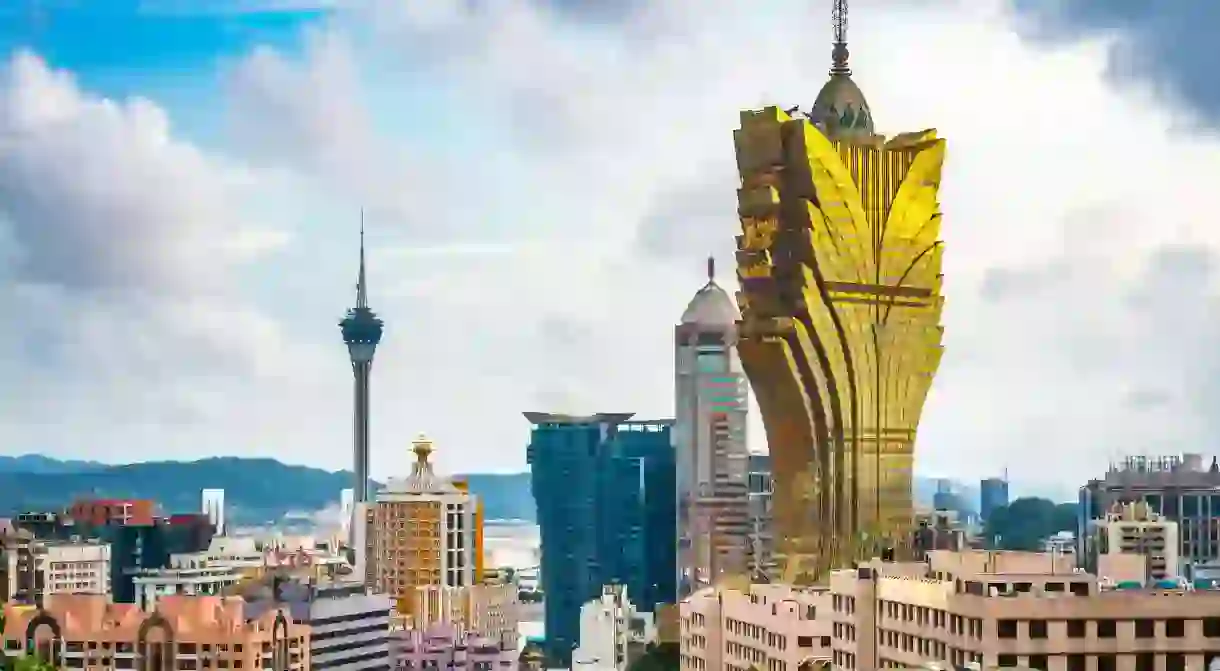What Remains of Portuguese Influence Still Exist in Macau

Macau, China’s first and last European colony, was under Portuguese rule for over 400 years until it returned to Chinese sovereignty in 1999. Those 400 years of Portuguese rule made a big impact, shaping the city’s unique East-meets-West culture. Here are some of Macau’s best Portuguese bits that still influence the city today.
Casinos
Today Macau is famous internationally as ‘the Las Vegas of the East’. The city’s gambling industry is the most successful in the world, regularly raking in up to seven times more in annual gaming revenue than Vegas. However, Macau is the only city in China where casinos are legal. This is because, in 1844, the Portuguese legalised gambling and casinos in Macau, and the city was granted Special Administrative Region status after the handback to China in 1999, meaning that gambling and casinos were allowed to remain.

Architecture
One of the most distinctive reminders of Portuguese influence in Macau is the numerous buildings that retain their Portuguese-style architecture. The city is filled with pastel-coloured neoclassical buildings that were built during colonial times. Many of these buildings form part of the historic centre of Macau, which became a UNESCO World Heritage site in 2005. Macau’s town square, ‘Senado Square’, along with the St Lazarus Quarter offer the best opportunities to see Macau’s picturesque Portuguese-style architecture.

Portuguese food
Outside of Portugal itself, Macau remains one of the best places in the world to sample delicious Portuguese cuisine and, increasingly popular, Portuguese wines. In fact, Macau is believed to be home to the world’s first fusion cuisine, ‘Macanese cuisine, which is a unique blend of both Chinese and Portuguese ingredients. Its history dates back over 400 years. Meanwhile, signature Portuguese dishes like bacalhau are easy to find at local favourites like A Lorcha, Restaurante Fernando and the recently opened Tapas de Portugal. There are over 600 different labels of Portuguese wines to choose from at local wine lounge Macau Soul.

Portuguese egg tarts
You can’t come to Macau and not try what has become the city’s own edible icon. Macau Portuguese egg tarts are based on Portugal’s traditional pastel de nata and have been slightly adapted for Macau. These delicious sweet treats taste best straight out of the oven from Lord Stow’s Bakery, located on Macau’s Coloane island.

Street names
Even to this day street signs in Macau are listed in both Chinese and Portuguese. Street signs resembling traditional blue-and-white Portuguese ceramic tiles display the names of streets in what has become a symbol of Portuguese influence that still remains in Macau today.

Wavy paving
Look up and you see beautiful neoclassical Portuguese architecture and look down and you see equally striking Portuguese-style wavy mosaic tiled paving. This unique paving was laid in the early 1990s in Macau’s Senado Square when the area was declared a pedestrian-only zone in order to accommodate the increasing number of tourists. You can see designs laid in stone in the typical Portuguese style throughout Macau. Originally made from broken pottery pieces from sailors ships, these designs are now created by Portuguese artists to bring the tradition and design into this century.

Portuguese language
Macau has two official languages – Cantonese and Portuguese. However, it’s estimated that only 3% of Macau’s current population speak Portuguese as a first language, while 7% claim fluency. Cantonese is the most widely spoken language in Macau and Mandarin is becoming more common, too. Portuguese is still commonly spoken in areas such as law and journalism. Macau has a lively Portuguese press, including three dailies, a radio station and a TV channel.













